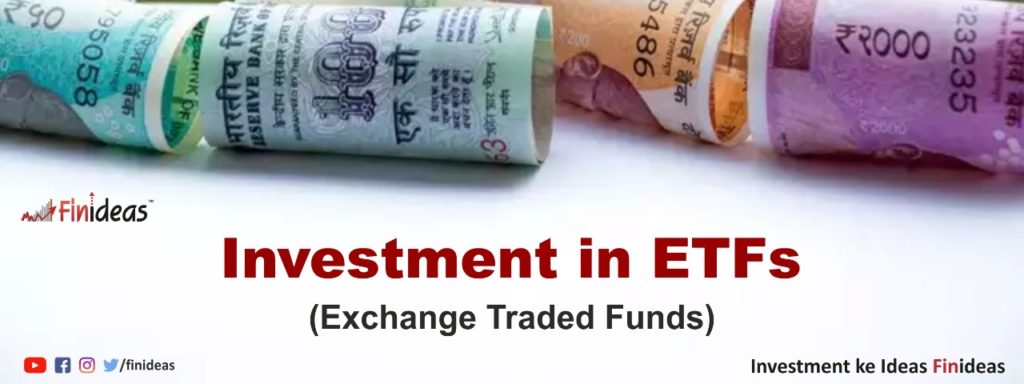Investment in ETFs

ETF term stands for Exchange Traded Funds. It is a passive way of investment in Stock market. They are the most preferred investment choice to the most retail investors in the world.
Just like Open-ended Mutual Funds, ETFs are the basket of various securities. Instead of investing in a single stock, people can invest passively in a diversified portfolio that managed by investment professionals. That is the basic similarity of ETFs and Mutual Funds. But there are some fundamental differences between them:
- Generally, In Mutual funds, a fund manager uses his analysis and skill to choose the basket of securities. On other hand, most ETFs in the world either track index or follow a strict system for stock selection.
- The mutual funds can subscribe/redeem only once in a day while ETF units listed on Exchange can be bought/sold for multiple times during the market hours.
The first ETF in India was introduced by Benchmark Mutual Funds in 2001 named Nifty ETF with a goal to manage the basket as per Nify50 Index. ETFs become more popular after the major fall in 2008. Nowadays, ETFs industry has grown and includes the various segments like, Equity market, gold, Fixed income etc.
Major Advantages of ETFs
- Liquidity: As ETFs are Exchange Traded, we get a full liquidity to purchase or sell units anytime
- Low cost: ETFs are having low expense ratio compare to other mutual funds and investment instruments.
- Transparency: ETFs are very transparent because they are following the mechanism of index or strict systems to choose the stocks in it.
With the above and more numerous advantages over Mutual Funds, ETFs are getting the phenomenal adoptions in recent years including large financial institutes, government organizations & government itself also.
In conclusion, if you are a long term investor, Exchange Traded funds are most suitable investment instrument with low expense ratio.
At Finideas, we offer a best investment plan to invest in Index ETF with the hedging against the market fall. You can visit our product Index Long Term Strategy to know more.
Thank You. Happy Investing.
